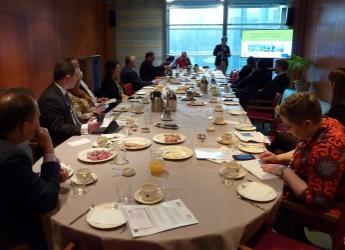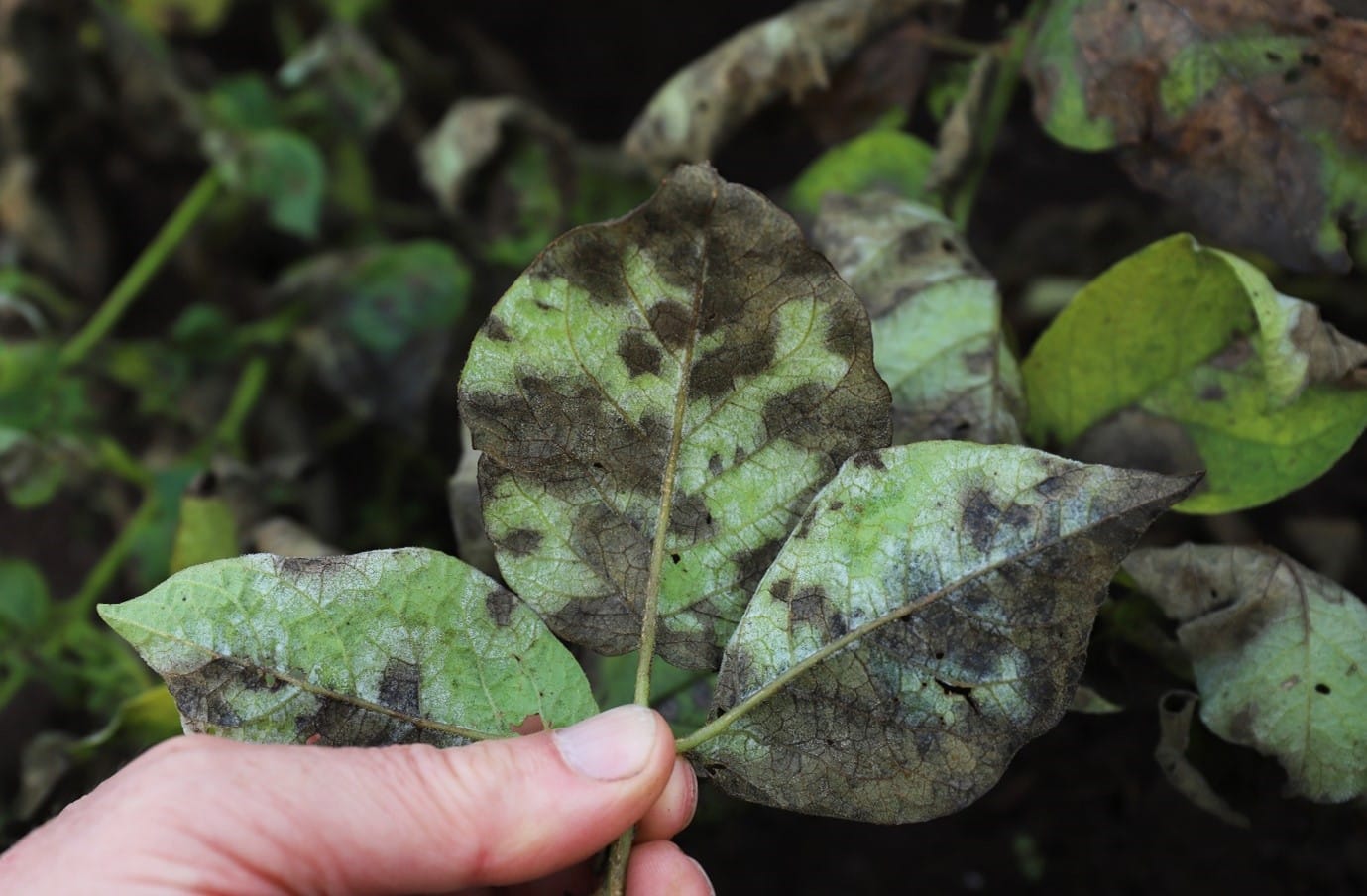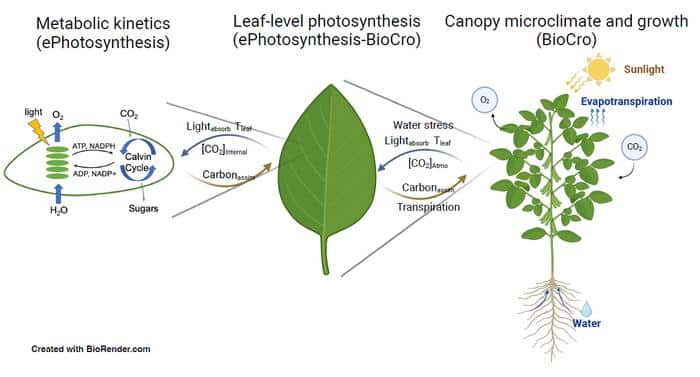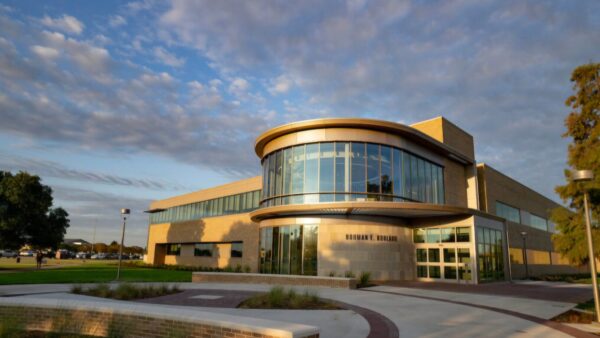Adopting a systems perspective is essential to help agriculture contribute to Europe’s own policy objectives and also international targets such as the UN Sustainable Development Goals. That was one of the key messages of a presentation delivered by Hutton scientists Dr Kerry Waylen (SEGS) and Dr Keith Matthews (ICS) with Professor Mario Giampietro (Autonomous University of Barcelona) at a ‘MAGIC’ breakfast at the European Parliament in Brussels.
Scottish MEP Sheila Ritchie hosted the breakfast on her last working day before the UK’s departure from the European Union.
Discussions focussed on bringing about a new understanding of agriculture and food as part of an interconnected ‘nexus’ of a complex, dynamic and contested social-ecological systems. Dr Waylen explains: “Policymaking in this area is incredibly challenging and can benefit from new, more holistic, analytical approaches to identify where change is needed, and to better anticipate the consequences of potential interventions.
“Examples from MAGIC show how this can be done. Our Societal Metabolism approach can characterise system sustainability across scales and levels, and from ‘farm to fork’ i.e. production through to consumption. Doing so can highlight potentially unexpected consequences, e.g. from shifts to healthier diets, and signals the need for closer integration of the Common Agricultural Policy with initiatives for water, energy and the circular economy.”
The analysis of agricultural production and supply systems undertaken by Dr Matthews and Professor Giampietro in collaboration with other MAGIC colleagues highlights environmental pressures generated by consumption, and that further pressures and impacts within Europe are avoided by using imported goods. However, these imports can cause serious negative environmental pressure outside of the EU, so this process of ‘externalisation’ has implications for both Europe’s food security and its contribution to other countries’ Sustainable Development.
“We believe the insights of MAGIC indicate transformative change may be needed to achieve EU policy goals and international commitments, yet any changes and innovations in the agri-food system must be carefully appraised in terms of multiple environmental consequences,” Dr Waylen added.
The event at the European Parliament showed how research initiatives such as MAGIC can suggest changes in metrics, methods, monitoring and also provide spaces for reflection and reframing the debate.
MAGIC, which stands for “Moving Towards Adaptive Governance in Complexity: Informing Nexus Security”, is a four-year project funded by Horizon 2020, the biggest EU Research and Innovation programme ever with nearly €80 billion of funding available over 7 years (2014 to 2020). The project focusses on integrated approaches to food security, low-carbon energy, sustainable water management and climate change mitigation.
Source: James Hutton Institute













